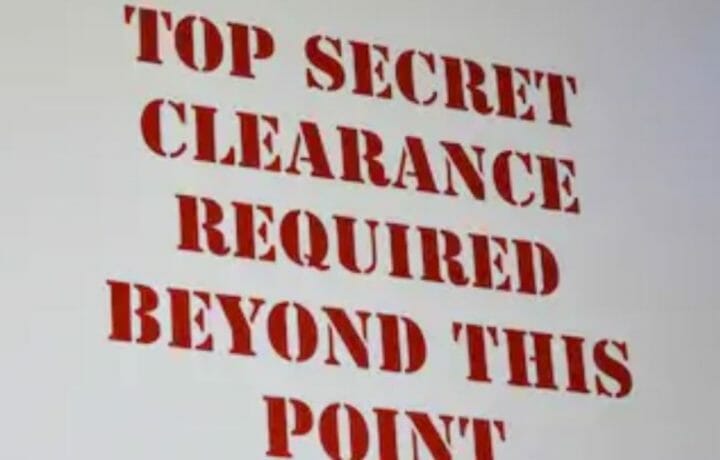In case you think it’s scandalous to be searching ClearanceJobs.com on your work computer (it’s not – just maybe wait until you’re home to apply for the job), we’re reminding you that a decent number of people still have trouble avoiding viewing naughty pictures from their work machine.
We’ve covered the issue of porn and your security clearance before. Many people are surprised to learn ‘sexual behavior‘ is still an adjudicative criteria, which means your bedroom activities are still fair game in a security clearance determination. The issue rarely comes up in a Secret or Tier 3 clearance investigation. But if you’re undergoing a full scope polygraph, the range of potential questions is much larger. You may be asked if you’ve viewed pornography, or you may be asked if you’ve ever misused a workplace device.
A recent question on the ClearanceJobsBlog Discussions site called attention to how youthful indiscretions from years past may still come back to haunt you during your security clearance investigation. The individual looked at pornographic images – on a work computer – in 2003. He was fired by that company, but then made the further mistake of lying about it when reapplying for a security clearance shortly after. The clearance was denied – only in part because of the incident (which may have been mitigated), but also for lying about the incident.
Why is Sexual Behavior an Issue?
In most instances of security clearance denial, multiple issues are present – bad credit and lying about it, a sexual assault that resulted in a criminal charge. The reason for denial isn’t because the government has a problem with credit cards or is unwilling to give criminals a second chance – it all boils down to reliability, trustworthiness, and potential for blackmail. Any time an individual lies about an issue on their SF-86 (not just forgets, but flat out denies) the government knows they’ll go to great lengths to keep that information a secret. And if they’ll try to hide it from the government, there’s a good chance they’d try to hide similar behavior from a spouse or employer- putting them at risk for blackmail.
If you’re applying for a security clearance and you were previously fired for watching pornography at work, don’t lie about it. You can mitigate the issue by showing passage of time, change in behavior, and exhibiting how that indiscretion was not typical behavior.
If you currently hold a security clearance and you make the mistake of viewing pornography at work, you have different issues entirely. You risk losing your job and your clearance under the ‘misuse of IT systems‘ adjudicative criteria. That is a hard issue to mitigate when you already hold a security clearance, typically considering most government workers acknowledge their work is being monitored every time they log in.
Mistakes happen. If you click on the wrong link, or open something you shouldn’t, you are probably better off self-reporting the issue – and enduring the embarrassment that comes with it. Because if you think what happens at work, stays at work – you’re wrong.



